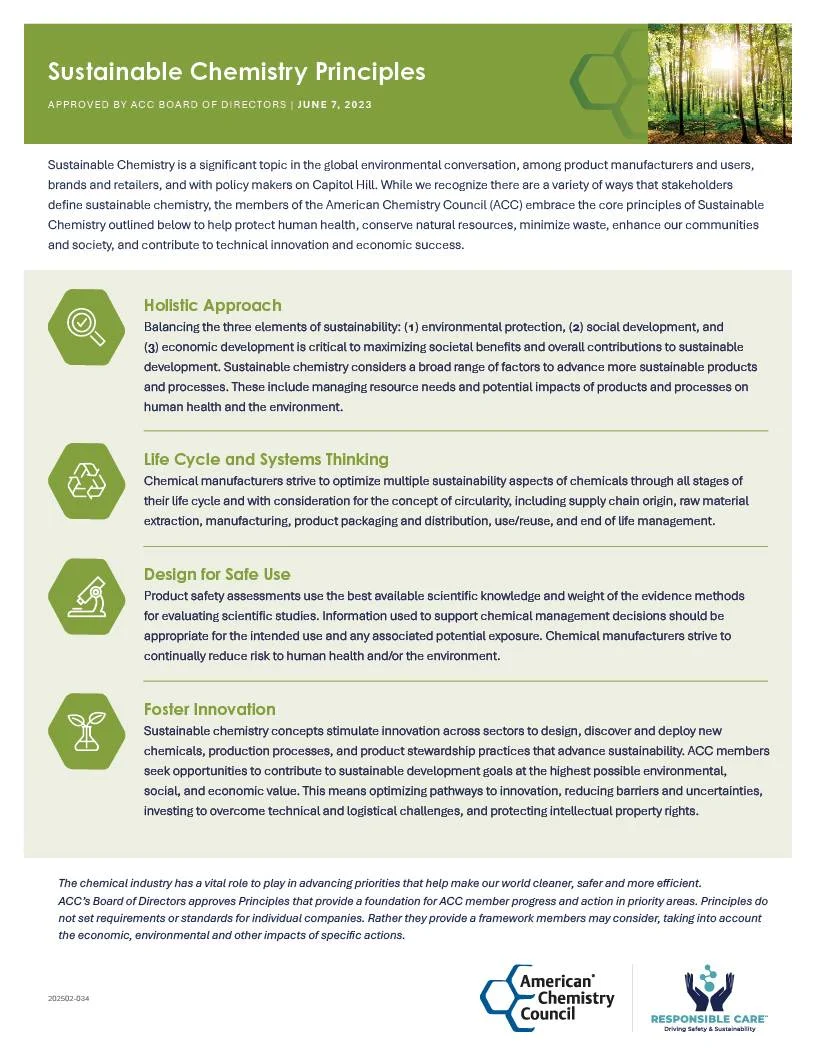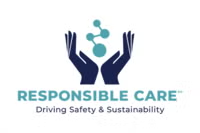Sustainable Chemistry is a significant topic in the global environmental conversation, among product manufacturers and users, brands and retailers, and with policy makers on Capitol Hill.
While we recognize there are a variety of ways that stakeholders define sustainable chemistry, ACC advocates for a risk-based, holistic approach to sustainability. We all have a common goal: to innovate products and design processes with greater sustainability for people and the planet. Our society and its needs are continuously changing and progressing, which means innovating new products, materials and technologies that meet these needs, while also helping to achieve priorities set forward in the United Nations Sustainable Development Goals (SDGs).
That’s why ACC set out to develop a set of principles to support ACC’s sustainability initiatives, policy advocacy, communications and efforts to combat hazard-only approaches to sustainable chemistry. ACC’s Sustainable Chemistry Principles present a risk-based approach to designing and discovering the next generation of chemicals and materials that recognizes sustainability is specific to products and their applications, operations and their locations, and the trade-offs that may inevitably occur, to achieve the most sustainable outcomes for people and the planet.
We’re excited to share that the ACC Board of Directors approved the Sustainable Chemistry Principles at its annual meeting earlier this Summer. These principles help protect human health, conserve natural resources, minimize waste, enhance our communities and society, and contribute to technical innovation and economic success. ACC’s Sustainable Chemistry Principles are based upon four core tenets:
- Taking a holistic approach to balance the three elements of sustainability: environmental protection, social development, and economic development.
- Promoting lifecycle and systems thinking to optimize multiple sustainability aspects of chemicals throughout their life cycle.
- Designing products for safe use, using the best available scientific knowledge.
- Fostering innovation to design, discover and deploy new chemicals that advance sustainability.
By adopting and publicly communicating these Principles, ACC can demonstrate our members’ commitment to sustainable chemistry using a science-based approach, as well as how our member companies integrate product safety and sustainability considerations into new product and process development. We look forward to engaging key stakeholders as we work to identify opportunities for strategic action to support sustainable chemistry.





